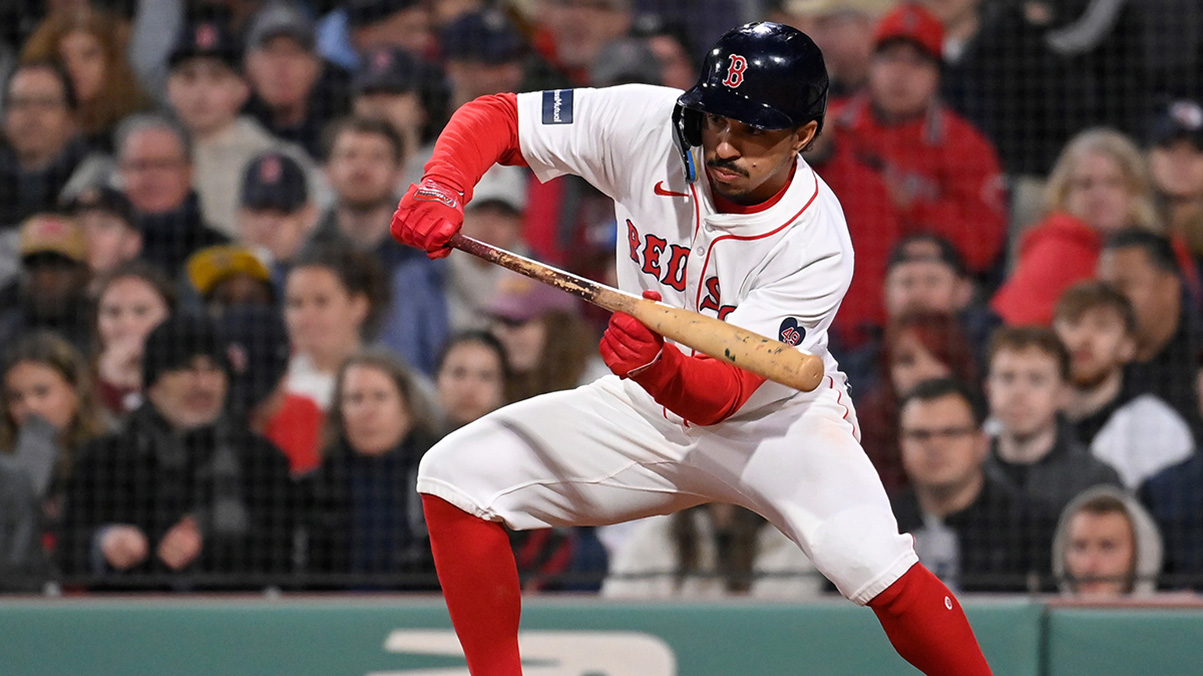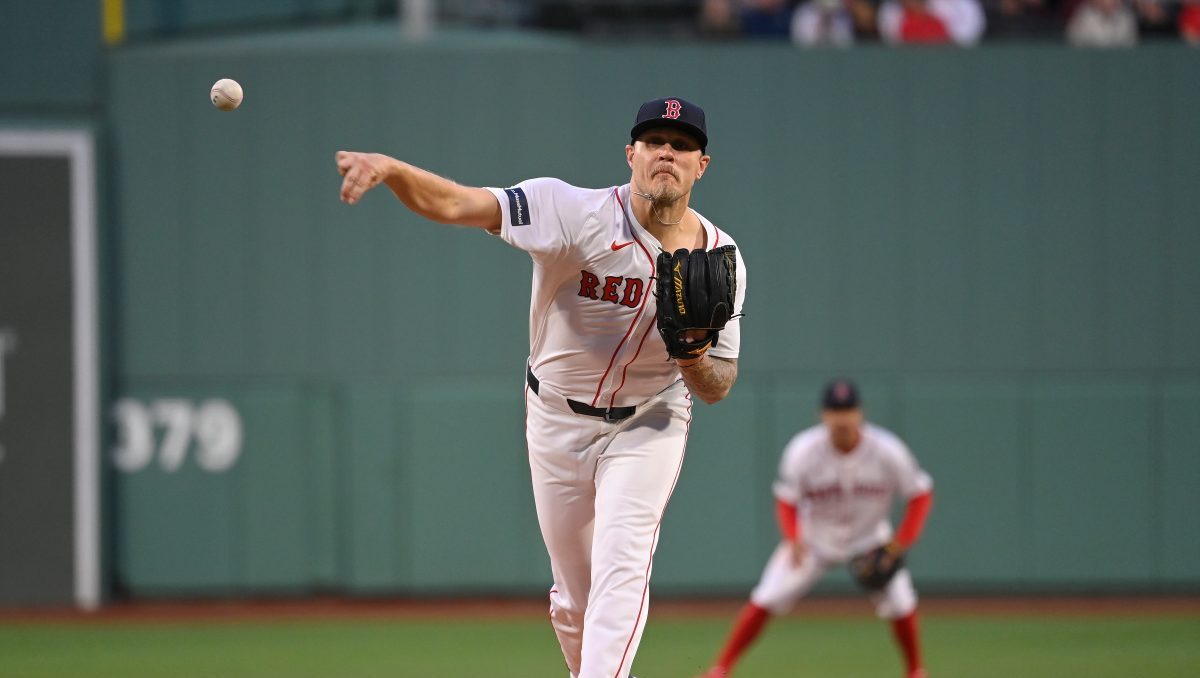
Last night, in the shadow of the Celtics fifth straight loss and amidst the lingering pain of our annual Patriots hangover, I plowed through 1,513 tiny iBook pages worth of Francona: The Red Sox Years.
The book, co-written by the former Sox manager and the Globe's Dan Shaughnessy, is both an easy and important read for Boston fans. Honestly, if you were affected even one iota by the 2004 title, if you've been offended even slightly by the recent behavior of this current ownership group, if you're even remotely jaded by the state of this organization and want a better understanding of how and why everything unfolded the way it has, this book is worth your time. As someone who's been openly, sometimes excessively critical of Shaughnessy's recent newspaper work, I feel like I can say that from a fair and balanced place. Although, considering I'm the same guy who consistently refers to John Henry, Larry Lucchino and Tom Werner as the Three Stooges in my columns, perhaps there are certain biases at work.
Anyway, there's already been a ton written about Francona, after a few excerpts came out last week and the entire book was released on Tuesday. And most of it has focused on two major themes.
1. Ownership: Both Francona and Theo Epstein are very candid about the highs and mostly lows of dealing with Henry (who unsurprisingly, exists almost entirely by way of e-mail), Werner (who comes off as the most disingenuous member of the trio) and Lucchino (who's portrayed as every bit the egomaniac that his reputation would suggest). In fact, most of the stories involving ownership merely reiterate what we already suspected about the motivations and priorities inside Yawkey Way. Still, it's interesting to learn about the specifics.
The end of the book focuses almost entirely on Francona's relationship with ownership in the aftermath of September 2011, but none of it is very groundbreaking. There's no deeper insight into who may have leaked the manager's dirty laundry, and most of the conversations have already been reported in some capacity. The relationship leading up to 2011 is far more captivating.
2. Manny Ramirez: There are some unbelievable Manny stories in this book. Hilarious stories that build on the already mythical legend of Manny Being Mannylike when the Cardinals accused him of stealing signs in the 2004 World Series, and Manny responded (eventually) by admitting that he didn't even know his own team's signs.
But there are also a few seriously messed up stories. Stories beyond him attacking Jack McCormick, that showdespite the goofy personaa darker, legitimately evil side of Manny. Francona recalls numerous conversations with veterans players (Varitek, Damon, Mirabelli, Ortiz) where they'd almost helplessly try to figure out ways to deal with someone so selfish and corrupting, yet equally irreplaceable. Ramirez: The Red Sox Years would be the greatest book of all-time.
Boston Red Sox
But there's much more to Francona: The Red Sox Years than Manny and the owners. Believe it or not, there's also a ton of insight into Franconawho he is, how he approaches the game, why he manages the way he does and even why he's been so vengeful and unforgiving in light of everything that happened. I think Theo Epstein summed it up best when he said:
Tito loves baseball. He loves the game. He physically loves the clubhouse. Emotionally, I think he loves to let go of the outside world. Some people compartmentalize the job. Tito compartmentalizes the real world, throws himself into the clubhouse, loves every aspect of the clubhouse. He loves being down there and loves nakedness, vulgarity. Loves joking around, loves busting peoples balls, loves playing cards. He loves everything about it. Its part of the fabric of who he is.
Through it all, you come to understand why Francona's approach was initially so effective, and also why it ultimately fell apart. You also learn about the absolute insanity of managing in Boston. How Francona came to dread stopping at red lights, because it invariably led to some sort of critique or pep talk from the guy in the car next to him. How he used to sneak off and eavesdrop on Joe Maddon's media sessions and be blown away by how easy Maddon had it.
There's a lot about Francona's relationship with Theo, and just Theo in general. How invested and involved he was on a day-to-day, almost pitch-to-pitch basis. How there was a time when he'd wait in Francona's office after every game, ready with rapid fire questions on a multitude of Tito's in-game decisions. Of course, Shaughnessy goes pretty deep into the power struggle between Epstein and Lucchino, but I was far more interested in who Epstein was away from all that drama. Times when, despite his Doogie Howser existence, the GM was still just a fiery, young kid.
For instance, did you know that after the Sox were blown out in Game 3 of the 2004 ALCS, Epstein was so distraught that he went back to a buddy's apartment, forced himself to watch a replay of the Grady Little game, got wasted on vodka tonics and passed out on the couch? I didn't. And even better, after the Sox won Game 4, the vodka tonics became somewhat of a superstition, leading to Epstein being hungover for most of those four nights in October.
Honestly, as a fan, everything about the 2004 season is pretty awesome. Who knows how that year would have been remembered had one of numerous things gone differently, but the love that Francona and Epstein have for that crew is off the charts. Everything they say about that season only adds to the legend and makes you miss those days even more.
The early days of Pedroia, Lester and Papelbon are remembered just as fondly. Francona also delves into the legacy and psyches of guys like JD Drew, Edgar Renteria and Keith Foulke. There are so many stories, just stupid clubhouse stories that will make you laugh out loud. Like the time Francona found an old picture of Johnny Pesky wearing nothing but his underwear and used it to taunt Pesky with lines like: "I've got the only framed Johnny Pesky picture with his balls hanging on the floor."
Obviously, after the second championship, the book takes a turn. All the fun is replaced by depression and drama, and we see every inspiring characterFrancona, Epstein, Ortiz, Lesterslowly morph into their own separate monster. Everyone loses control, and we end up where we are today.
And there's no question that the owners are responsible more making the whole experience at least 100 times worse. But after reading this book, I'm less inclined to blame them AS MUCH for the downfall of this team.
I've mentioned this concept already this week in regards to the Patriots and Celtics, but do you realize how hard it is to contend for a title every single year? It's impossible. And when the Sox started to fall short, the owners reaction was short-sighted and selfish, and only made things worse. But it was already bad. It wasn't all them.
Was it the owners fault that Ortiz hit a wall for two seasons? That Ellsbury, Youkilis and Pedroia all lost significant time with injuries? That Ortiz busted into a press conference and threw a tantrum over one RBI? That Tim Wakefield became obsessed with 200 wins? That Mike Lowell went from being one of the foundations of that clubhouse to just another disgruntled veteran? That Josh Beckett infected the pitching staff?
And even if their motives were slightly off, can we really fault the Three Stooges for spending all that money on Carl Crawford and Adrian Gonzalez? Even if they overpaid, how angry can you be when an owner opens his wallet for two of the consensus best players in baseball?
It gets to the point where you find yourself asking the question: How different would we remember these guys, or this entire era, if not for September 2011? What if the Sox had won just one more game? What if they won five more games?
We forget how dominant that team was before the collapse, and how happy we all were with the state of this team. If not for one or two losses in September 2011, Francona might still be here, Theo might still be here, and we'd have a hard time getting too worked up over ownership's ridiculous behavior.
That's one way to look at it. Another one is this, courtesy of story told to Shaughnessy by former Sox CCO Mike Dee about the 2004 World Series parade.
"I was on the same Duckboat as Terry," Dee said. As we were going from the street to the water, fans were congratulating him and telling him how great he was, and he told them: 'If not for one stolen base, I'd probably have been fired!
And it's true. Looking back at the last eight years there are countless things that could have gone differently that would changed everything. So many "what-ifs" that would render the current state of the Red Sox unrecognizable.
But for a deeper, emotional, and mostly entertaining recap of what actually did happen, Francona: The Red Sox Years gets the job done.
At the very least, it's welcomed a diversion from the Patriots and Celtics.
Rich can be reached at rlevine@comcastsportsnet.com. Follow Rich on Twitter at http:twitter.comrich_levine


